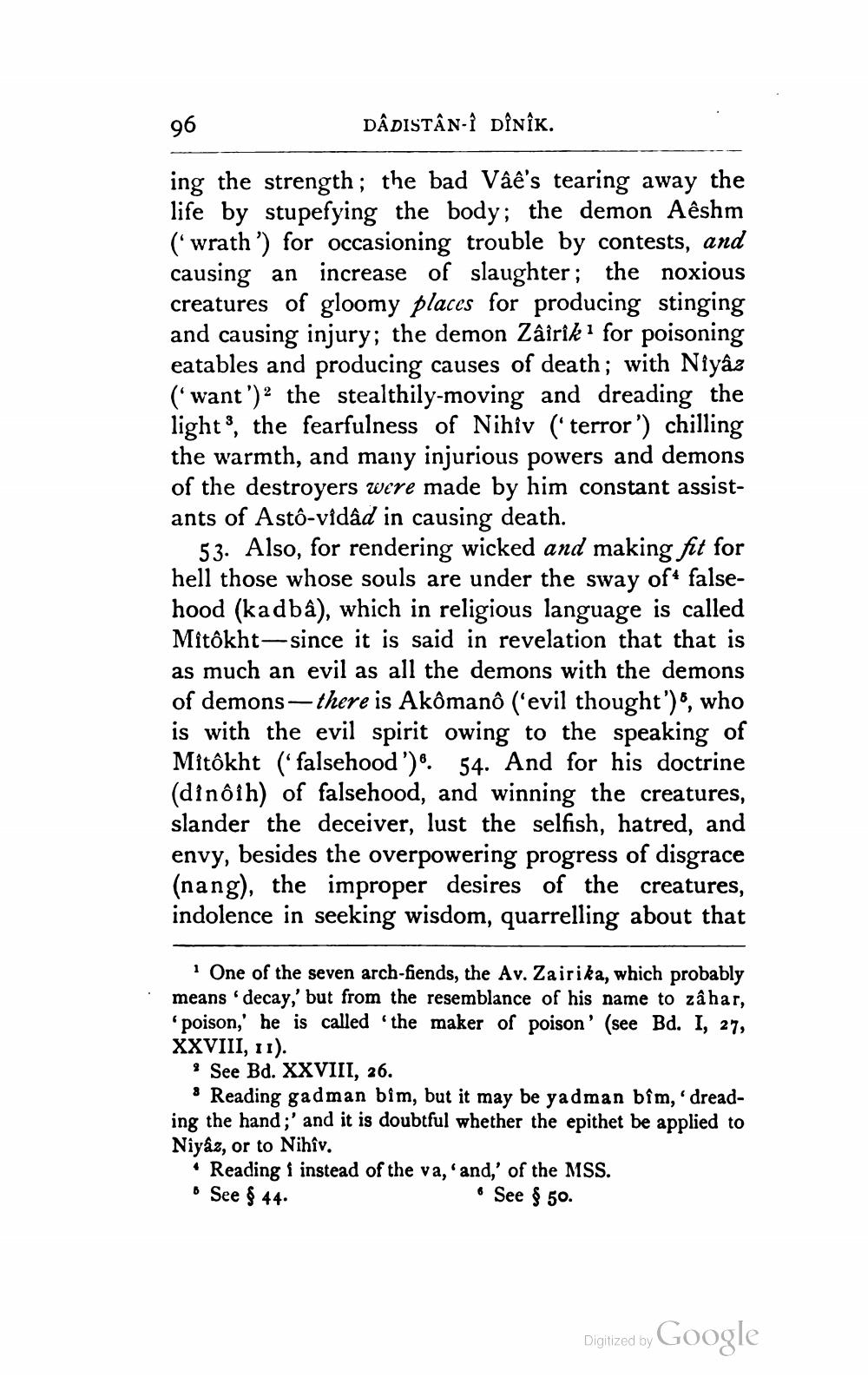________________
96
DÂDISTÂN-I DÎNIK.
ing the strength; the bad Vâe's tearing away the life by stupefying the body; the demon Aêshm ("wrath') for occasioning trouble by contests, and causing an increase of slaughter; the noxious creatures of gloomy places for producing stinging and causing injury; the demon Zâirik 1 for poisoning eatables and producing causes of death; with Niyâz (“want ')2 the stealthily-moving and dreading the lights, the fearfulness of Nihiv (“terror ') chilling the warmth, and many injurious powers and demons of the destroyers were made by him constant assistants of Astô-vidâd in causing death.
53. Also, for rendering wicked and making fit for hell those whose souls are under the sway of* falsehood (kadba), which in religious language is called Mítôkht-since it is said in revelation that that is as much an evil as all the demons with the demons of demons—there is Akômano ('evil thought')®, who is with the evil spirit owing to the speaking of Mitôkht ("falsehood ') 54. And for his doctrine (dinộih) of falsehood, and winning the creatures, slander the deceiver, lust the selfish, hatred, and envy, besides the overpowering progress of disgrace (nang), the improper desires of the creatures, indolence in seeking wisdom, quarrelling about that
1 One of the seven arch-fiends, the Av. Zairika, which probably means 'decay,' but from the resemblance of his name to zahar,
poison,' he is called the maker of poison' (see Bd. I, 27, XXVIII, u).
. See Bd. XXVIII, 26.
* Reading gadman bim, but it may be yadman bîm, dreading the hand;' and it is doubtful whether the epithet be applied to Niyaz, or to Nihîv.
• Reading 1 instead of the va,'and,' of the MSS. • See $ 44.
• See $ 50.
Digitized by Google




